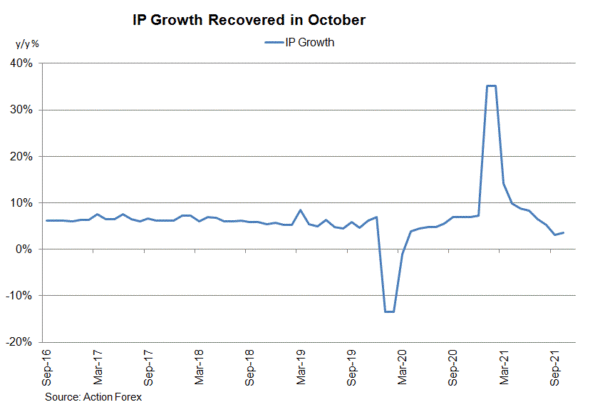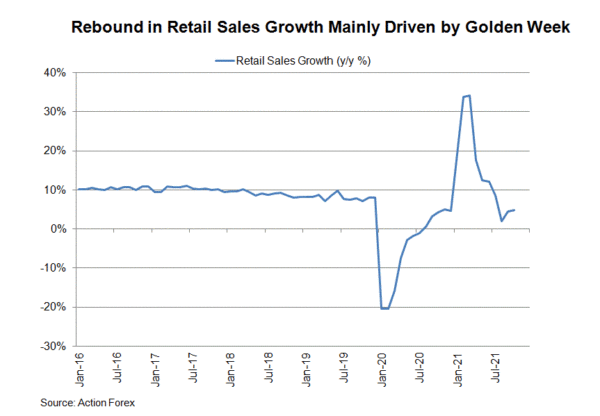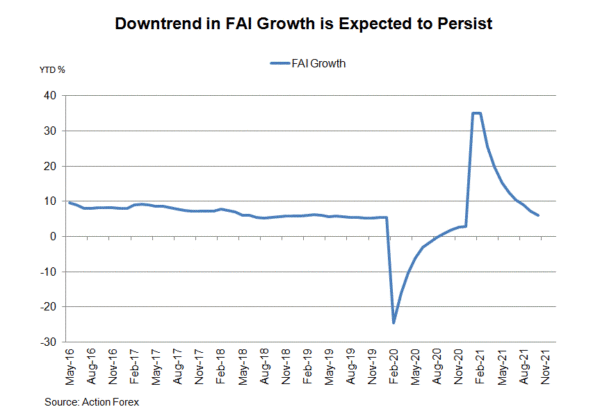The latest of data for October revealed fragility of China’s economic recovery. Although growth of both industrial production and retail sales beat consensus, the momentum appears weak. Property developments would continued to be hampered by government’s erratic change in policy and debt problems in the sector, hurting overall fixed asset investment in the months ahead.
Industrial production grew +3.5% in October, accelerating from +3.1% a month ago. This also beat consensus of +3%. Improvement was seen in industries such as computers, utilities and food manufacturing while growth of pharmaceuticals production slowed.

Retail sales expanded +4.9% y/y, beating consensus of +3.8% and September’s +4.4%. Stronger sales were driven by Golden Week holiday in the first week of the month. Resurgence in the pandemic, however, continued to hurt catering sales of which growth weakened further to +2% y/y , from +3.1% in September. Automobile sales among medium/large dealers declined -11.5% y/y in October, following a -11.8% contraction a month ago. Benefiting from restrictive measures, online sales growth accelerated to +10.3% y/y in October, up slightly from +10.1% in September.
 Fixed asset investment grew +6.1% in the first 10 months of the year, slowing markedly from 7.3% in the first 3 quarters. The market had anticipated that growth eased to +6.2%. Breaking down into different categories, growth in manufacturing investment was 10.1% y/y in October, compared with +10.2 in September. Property investments, however, declined -5.6% y/y in October, worsening from -3.5% in the prior month. Infrastructure investments also contracted -2.4% y/y in October, after September’s -3.0% fall.
Fixed asset investment grew +6.1% in the first 10 months of the year, slowing markedly from 7.3% in the first 3 quarters. The market had anticipated that growth eased to +6.2%. Breaking down into different categories, growth in manufacturing investment was 10.1% y/y in October, compared with +10.2 in September. Property investments, however, declined -5.6% y/y in October, worsening from -3.5% in the prior month. Infrastructure investments also contracted -2.4% y/y in October, after September’s -3.0% fall.

Economic Outlook
For the month ahead, the impact of the “double-11” festival on retail sales should be closely-watched. While consumption during the period has over the past years triggered a spike in November’s retail sales, this year might be different amidst government’s crackdown on the tech companies. Alibaba’s sales data shows that total gross merchandise volume (GMV) rose +8.5% y/y to US$ 84.5B in the first 11 days of the month. The growth nonetheless fell below the low end of consensus forecast of US$ 86B.
The headwind of fixed asset investment growth remains. Debt problems of China’s property sector appear to have spread from Evergrande to smaller players. Developers such as Sinic and Kaisa Group Holdings have recently announced they might default the interest payments. As the situation worsens, negative chain effects would haunt market confidence, property sales and property developments.
